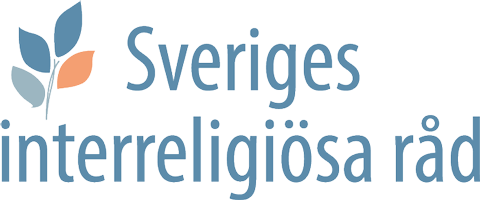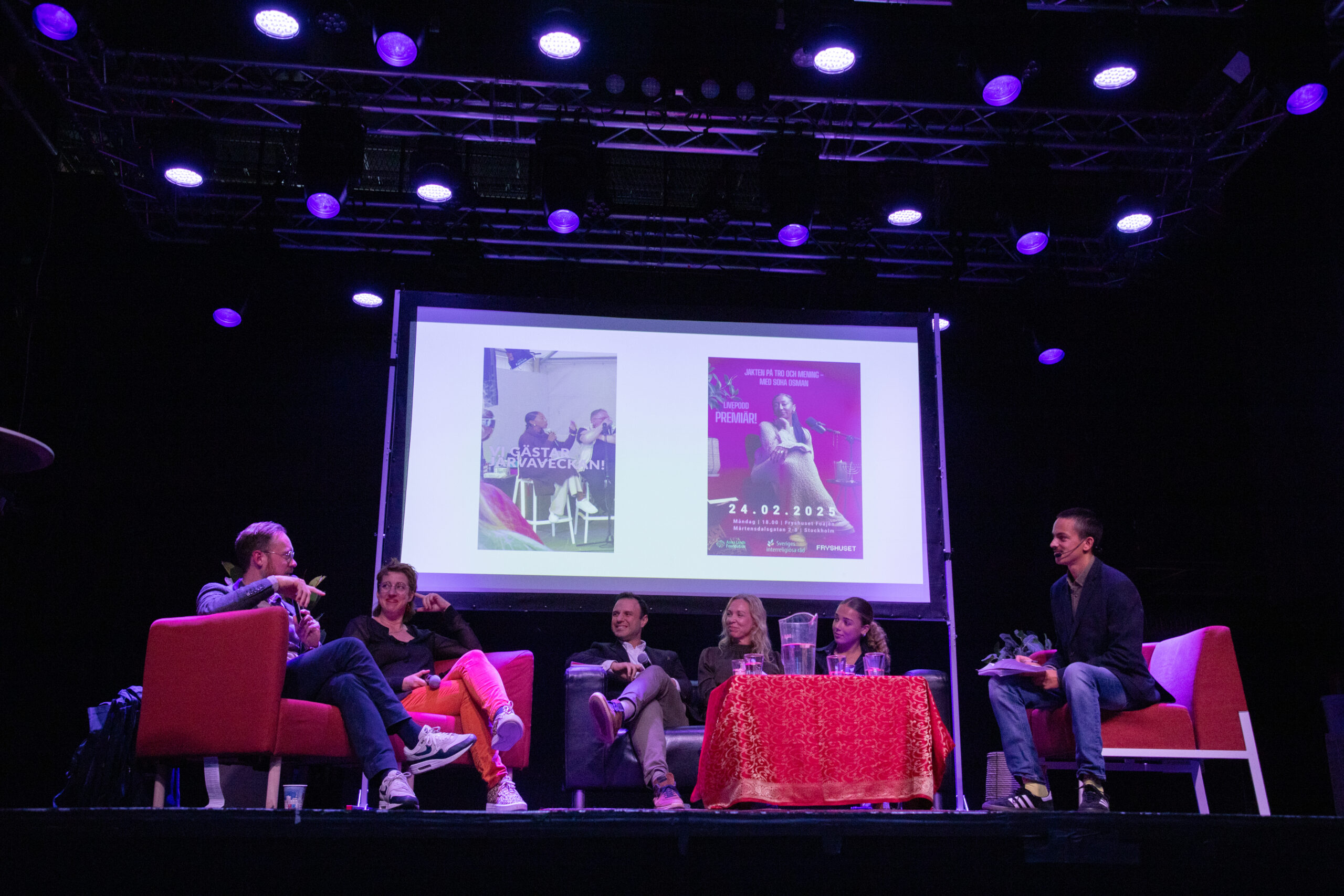
Professor Azza Karam, an internationally recognized scholar and practitioner in interfaith dialogue and former Secretary-General of Religions for Peace, participated in several discussions on peace, sustainability, and interreligious cooperation during Ekumeniska veckan in Stockholm.
Azza Karam shared her insights on the role of faith in society, the challenges and potential of interfaith collaboration, and sources of hope in a world marked by crises and polarization. Drawing on her global experience, she reflected on how religious communities can support societies in both ordinary and extraordinary times, the importance of acting collectively, and how faith inspires resilience and responsibility toward the planet and future generations.
Strengths and challenges of interfaith collaboration
Discussing the main strengths of faith communities working together, Azza Karam reflected:
– “Faith communities have many strengths. They are often the oldest social service providers, the gatekeepers and explainers of social norms and behavior patterns. They can change harmful behaviors, but they can also impose harmful norms.”
She emphasized that religious organizations form the root of communities worldwide. Unlike other organizations that must enter a community in times of crisis, religious communities are often the first and best to provide support—not only in emergencies but also through education, health services, and everyday social care.
The challenge, she noted, is sustained collaboration. Religious communities frequently serve the same populations but rarely work together. “Sometimes collaboration happens during emergencies,” she said, giving the example of the global pandemic, when churches, mosques, and synagogues opened their spaces for vaccination and information. “But sustained, multi-dimensional collaboration is still very limited. There is little research or best-practice guidance on interfaith collaboration. Even when studies document the work of religious communities around HIV/AIDS, COVID, or education, they often treat each faith separately rather than showing what communities accomplished together.”

She also reflected on faith’s role in guiding collective responsibility and caring for the environment:
– “Faith is inseparable from hope and action. It guides our understanding of responsibility—not only to one another but also to the Earth. All religious traditions call on us to care for creation. Protecting the environment is not optional, it is a moral, ethical, and human duty. Everyone has a role to play. We cannot do it alone, but together we can uphold the sacred obligation to protect our common home.”
Sweden as an example of interfaith cooperation
Azza Karam highlighted Sweden’s approach to interfaith collaboration:
– “Sweden stands out in several ways. One is having a major national church that is willing to collaborate and open its spaces for other religious communities, which creates reciprocity and strengthens coexistence. Another is the strong interreligious council in Sweden, which works inclusively and advocates on behalf of all religious communities, supporting common interests and equality among faith leaders. These examples are fantastic models of cooperation and mutual respect, showing how religious communities can work together to benefit society.”
How does faith guide your own work?
– “Without faith, I would not be alive. Faith allows me to appreciate a drop of dew on a leaf, to treat others with respect, to hold back harsh words when I am hurt. Faith is not a tool—it is who we are and the best of what we can be.”
In times of polarization, what gives you hope?
– “Faith and hope are inseparable. I also find hope in the younger generation—their courage, curiosity, and commitment.”
She emphasized that faith calls us to act responsibly and collectively, caring for one another and for the planet. It inspires both resilience and a sense of shared duty, reminding us that our actions matter and that together we can create positive change.
Watch Azza Karam’s keynote at Engelbrektskyrkan during Ekumeniska veckan:
Building Peace Together – Keynote by Professor Azza Karam

